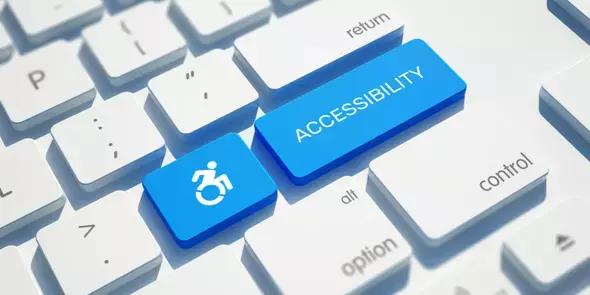If your website isn't accessible to everyone, you're missing out on a considerable portion of the potential market. Not to mention, it's simply the right thing to do. We live in a digital world, and accessibility is key to ensuring everyone can participate fully.
So what is digital accessibility? Simply put, digital accessibility is making sure that your website is available to everyone at all times. This includes people who are deaf, blind, or have low vision; those who have difficulty hearing; those who have cognitive or learning disabilities; and those who don't speak the same language as the content creator.
Why does digital accessibility matter?
There are a few reasons why digital accessibility is so important. First and foremost, it's a matter of social justice. A disability should not hinder social participation, including access to online information and services.
Businesses also benefit from digital accessibility. If your website is accessible to everyone, you open up the possibility of a broader user base. Studies have also shown that improving accessibility and search engine optimization (SEO) can increase traffic and conversions.
What are WCAG guidelines?
WCAG stands for Web Content Accessibility Guidelines. These guidelines are internationally recognized standards for making web content more accessible and were created by the World Wide Web Consortium (W3C), an international community that develops web standards. Three levels of WCAG compliance exist A, AA, and AAA. Level A generally corresponds to the most basic level of accessibility—for example, assuring that all images on a website have alt text so that people who are blind can understand what they're looking at. Level AA includes more comprehensive features such as video captions and podcast audio transcripts. As a final level of compliance, level AAA provides live captions for live video streams.
While there is no legal requirement to meet WCAG guidelines, they provide a good roadmap for making your website more accessible. A number of countries have developed their own guidelines based on WCAG; for example, Section 508 of the Rehabilitation Act requires all government websites to comply with WCAG 2.0 Level AA.
Accessibility isn't just about guidelines and best practices; it's also good for business. By following WCAG guidelines, you can ensure everyone can access and use your website equally. This will open up your potential customer base to a broader audience and increase traffic and conversions, thanks to improved SEO rankings.
So what are the first steps in determining if your website is Accessible and Americans with Disabilities Act (ADA) compliant? Let's begin with our Accessibility Audit, a comprehensive analysis of your conformance to WCAG standards, and work on making your website more accessible today.
Unearth Our Day Hikes
Information Request
Please fill out the information below.
Schedule A Meeting
Please fill out the information below.
Schedule a Phone Call
Please fill out the information below.
Information Request
Please fill out the information below.
Submit a Request or RFP
Please fill out the information below.
